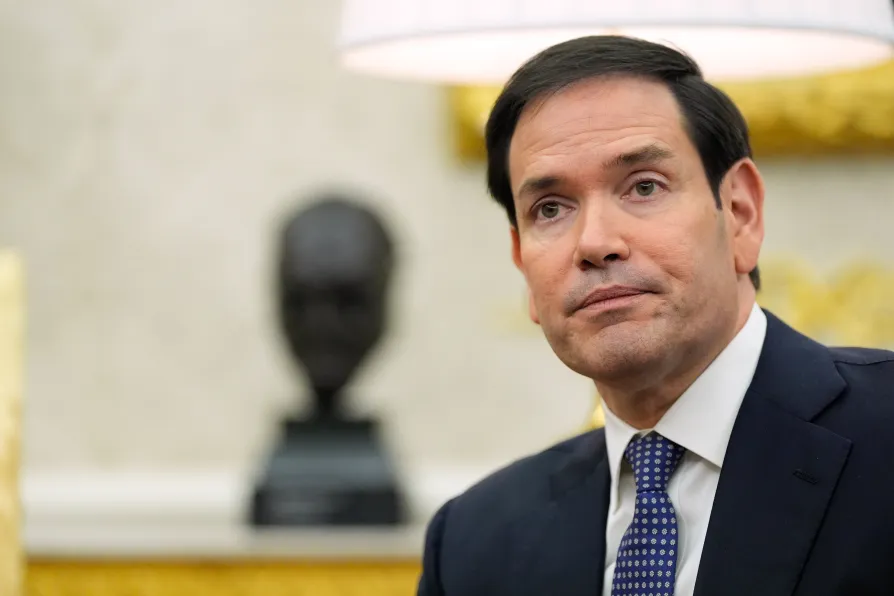
 Secretary of State Marco Rubio listens as President Donald Trump meets with NATO Secretary General Mark Rutte in the Oval Office of the White House, October 22, 2025, in Washington
Secretary of State Marco Rubio listens as President Donald Trump meets with NATO Secretary General Mark Rutte in the Oval Office of the White House, October 22, 2025, in Washington
THE United States is still ready to hold meetings with Russian officials, provided such contacts will contribute to resolving the Ukraine conflict, US Secretary of State Marco Rubio said today.
This came a day after US President Donald Trump called off a planned summit with his Russian counterpart Vladimir Putin and slapped sanctions against Russian oil companies Rosneft and Lukoil.
Mr Rubio said: “We’d still like to meet with Russians.
“I had a good call with Russian Foreign Minister Sergey Lavrov and we’ll follow up on that.”
Commenting on the latest US sanctions on Russia’s largest oil companies, Lukoil and Rosneft, Mr Rubio said: “I think the president has said repeatedly for a number of months now that at some point he will have to do something if we don’t make progress on the peace deal.”
“Today was the day he decided to do something,” he said.
Mr Lavrov said earlier this week that he had repeated to Mr Rubio earlier in the week that Russia has not altered its stance compared to the understandings reached during the Alaska summit between the Russian and US presidents that a lasting and sustainable peace is needed rather than an immediate ceasefire.
Meanwhile, the European Union has agreed on a new raft of sanctions against Russia targeting its so-called shadow fleet of oil tankers and banning its imports of liquefied natural gas, the Danish EU presidency announced today.
US and EU leaders claim ships carrying Russian oil in defiance of their own sanctions are illegitimate, though sanctions not authorised by the UN security council have no standing in international law.
“Today is a good day for Europe and Ukraine,” Danish Foreign Minister Lars Lokke Rasmussen said in a statement, as EU leaders were gathering for a summit in Brussels.
He said the new sanctions “will introduce new and comprehensive measures on oil and gas, the shadow fleet and Russia’s financial sector.”
A new system for limiting the movement of Russian diplomats within the 27-nation EU will also be introduced.
The 27-nation bloc has already slapped 18 packages of sanctions against Russia over the Ukraine war, but with seemingly negligible impact as Russia’s economy appears to remain strong.
Earlier this week, Ukraine’s strongest European backers who form part of the so-called “coalition of the willing” said they opposed any push to make Ukraine surrender land captured by Russian forces in return for peace, as President Trump has most recently suggested.
Britain is set to host a meeting of the members of that coalition of more than 30 countries on Friday.










